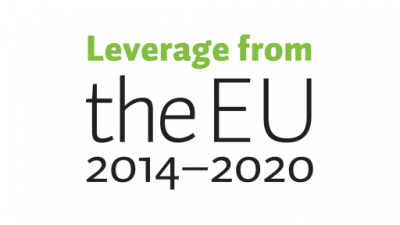Project
Data for Utilisation - Leveraging digitalisation through modern artificial intelligence solutions and cybersecurity
Project sponsors

During the last year, due to the COVID-19 pandemic, extreme measures have been taken in Finland as well as all over the world to restrict the movement of people and order companies to temporarily suspend their business. This has led to business losses, corporate bankruptcies and significant social consequences. As the physical mobility of corporate customers has decreased, their purchasing behavior has changed significantly, with a large number of services having to be created or transferred online. In many industries, online business has grown significantly at the expense of fixed stores. The downside to the increase in the use of computer networks is that, according to many studies, security threats and cyber attacks targeted at companies have also increased. The COVID-19 pandemic has thus forced many companies to rethink their digitalisation and cybersecurity strategies in a whole new light.
Cyber security has been identified as one of the most important enablers or even obstacles to digitalisation - depending on how well prepared the organisation is for potential cyber threats. It is not just about the security of information systems, but cybersecurity should also be built into all the functions and processes of an organization. Achieving a good level of cyber security in a company also requires that the entire personnel of the company should be familiar with the operation so that the continuity of operations can be guaranteed even in cyber incidents.
Another important enabler of digitalisation is artificial intelligence and its various applications. In general, artificial intelligence refers to a collection of different technologies and applications from data analysis to machine learning and natural language processing. With the help of artificial intelligence, machines, devices, programs, systems and services can operate in a sensible way according to the task and situation.
The possibilities for utilizing artificial intelligence are almost limitless, and the constant increase in the number of IoT devices and data in particular increases the number of applications. Examples are self-propelled cars, preventive maintenance of machines and equipment, quality control, automation of production lines, smart buildings and cities, logistics, traffic and safety monitoring using video analytics.
When talking about modern artificial intelligence solutions, the term Edge AI often comes to the fore, which is a combination of edge computing and artificial intelligence, where artificial intelligence processes data as close as possible to the data source, either directly on the device or on a server near the device. According to Gartner, 91% of today's data is processed centrally in cloud services and data centers, but by 2022, about 74% of all data will need edge analytics and decision-making. (https://www.gartner.com/smarterwithgartner/what-edge-computing-means-forinfrastructure- and-operations-leaders/) Edge AI can analyze data and make independent decisions even in milliseconds because it doesn't have to be connected to the cloud or computing server. As a result, Edge AI's fast decision-making creates new opportunities to leverage artificial intelligence in applications that require really fast decisions, and brings savings in data transfer and storage costs. Even if the analyzes and decisions made by the artificial intelligence are made using edge computing, the best benefit is obtained by connecting the observations produced by the devices directly to the business processes. For example, a delay of only a few seconds can cause massive losses on production lines if the decision-making required for control is delayed.
The underlying needs of the project and the current state of the companies have been mapped at a certain level in the Central Finland region for this project as well as in previous projects. Discussions have shown that companies have a lot of data-producing devices as well as large untapped data masses, the decision-making of which should take place quickly and as close as possible to the data source. Positive factors in deploying Edge AI include poor data connections, large amounts of data to be transferred, or fast decision-making requirements. However, companies lack the necessary understanding of the possibilities and requirements of artificial intelligence and cybersecurity. There is a need to make experiential and sufficiently practical information available to companies and other actors to raise
awareness.
This project answers this e.g. to the business survival challenges posed by the COVID-19 pandemic described at the outset through the application of modern artificial intelligence and cybersecurity. The aim of the project is to support companies in utilizing digitalization through modern artificial intelligence solutions and cyber security. The long-term goal of the project is to enable Central Finland to function as a pioneer region in digitalisation. The project is divided into four substantive work packages (TPs), in addition to which the fifth work package consists of measures related to project management and administration. The implementation of the four substantive work packages will achieve the following objectives:
Objective 1: The applications and possibilities of technologies and computing platforms based on artificial intelligence
and cybersecurity enabling the utilization of the data economy have been mapped and defined.
Objective 2: Computing platforms, solutions and operating models that develop digital capabilities have been defined
and tested through pilot cases.
Objective 3: The understanding and knowledge of companies and other actors about the requirements of cyber
security and its exploitation has developed.
Objective 4: Awareness of the opportunities of the platform economy and the utilization of digitalisation has increased
in companies operating in Central Finland.
The project is implemented by the IT Institute of Jyväskylä University of Applied Sciences. The project involves
companies operating in Central Finland from various industries.
More information: Lisätietoja: Mika Rantonen, +358 40 716 7269, [email protected]


